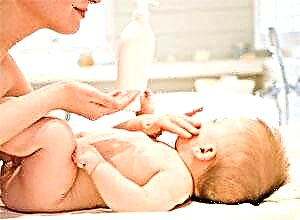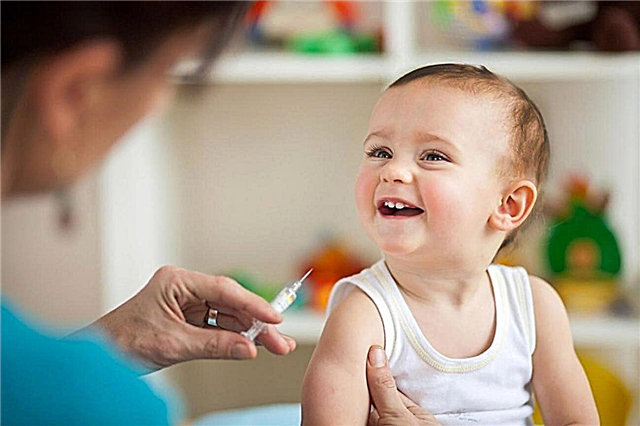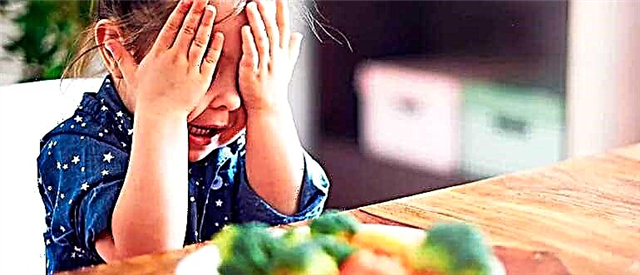
Herbal remedies for cough syrups are very popular with parents, since every mother wants to treat her baby with natural and harmless drugs. One of them is Gedelix syrup. At what age can children be treated with this remedy and how is it dosed?

Release form
Gedelix syrup is a thick yellow solution (sometimes with a brown tint), which has a peculiar smell. Normally, the liquid is transparent, but the appearance at the bottom of a sediment or turbidity of the solution is allowed. The product is placed in a glass bottle with a 5 ml dosing spoon. One bottle contains 100 ml of medicine.

Composition
The active ingredient is an extract obtained from ivy leaves. This substance in 100 ml of the drug contains 0.8 grams. Additionally, the agent includes glycerol, hyetellose and sorbitol. It also contains anise oil, water, propylene glycol and macrogol.

Operating principle
The remedy has an expectorant effect. Due to the saponins present in ivy extract, this drug also has antispasmodic and mucolytic properties.

Indications
The reason for prescribing a remedy in syrup is a situation when the secretion of the bronchi, due to its high viscosity, clears up the throat with great difficulty. Such a medicine is in demand both for inflammation of the bronchi and for infectious lesions of the upper respiratory tract.

From what age is it allowed to take?
The drug can be prescribed from birth, that is, it is permissible to give such a medication even to infants. There is also another form of Gedelix - drops, which are used only from 2 years old.

Contraindications
The drug should not be given to children who have been found to be hypersensitive to its components. The medicine in this form can harm a child with fructose intolerance or arginine succinate synthetase deficiency. There are no other contraindications for taking this drug in children.

Side effects
Since the basis of the drug is a plant extract, the child's body may "respond" to taking the drug with allergies. Also, some small patients react to the intake of such syrup with nausea, loose stools, abdominal pain or vomiting. If such symptoms appear during treatment, you need to consult a doctor to replace with another drug.

Instructions for use
- The drug is advised to be drunk undiluted after a meal, but for infants it is allowed to mix it with a small volume of water.
- The dosage of the drug is selected by the pediatrician, but most often, 2.5 ml of syrup is prescribed for children under 10 years of age, and 5 ml of the drug is prescribed for children over 10 years of age.
- Babies up to one year old are given medicine once a day.
- Children aged 1-4 years take the remedy three times a day, so the daily dosage will be 7.5 ml of the drug.
- For children 4-10 years old, the daily dose rises to 10 ml, therefore, four times a day is prescribed.
- For children over ten years old, the daily dose is 15 ml, so the drug at this age is taken three times a day.
- The duration of administration depends on the disease, but the drug is not prescribed for a period less than 7 days. If the symptoms of the disease have passed, it is recommended to drink the syrup for a few more days.

Overdose
Too large a dose provokes vomiting, severe nausea and diarrhea. Sometimes an excessive amount of the drug drunk causes gastritis or enteritis. For treatment, you should stop taking the medication and consult a doctor for symptomatic treatment.

Interaction with other medicines
The drug is not advised to be given together with medications that suppress the cough reflex. Such a combination of drugs provokes stagnation of sputum, since it blocks its coughing up from the bronchi.

Terms of sale
The tool belongs to drugs that are sold in pharmacies without a prescription. On average, the price of one bottle is 340-370 rubles.
Storage conditions and shelf life
So that the drug does not lose its therapeutic effect, it should be stored in a place protected from direct sunlight. In addition, small children should not have access to such a drug. The optimal temperature range for storing the medication is considered to be + 5 + 25 ° C. Shelf life is 4 years if not opened. If the bottle is opened, its contents can only be used for 6 months.

Reviews
Parents who gave Gedelix syrup to their children with a dry cough speak mostly positively about it. They praise such a medicine for its plant basis, the absence of alcohol and sugar in the composition, a pleasant taste and the possibility of using it for babies.
In most cases, judging by the reviews of mothers, the remedy helped the babies get rid of coughs faster and recover, but occasionally there are also references to the ineffectiveness of the drug, due to which it had to be replaced with another expectorant.
In some children, taking the drug provoked an allergic reaction. Also, many mothers attribute its high cost to the disadvantages of the medicine, therefore they prefer to use cheaper analogues.

Analogs
Other preparations based on ivy extract can be a substitute, for example, Herbion ivy syrups (prescribed from 2 years old), Pectolvan ivy (used in the treatment of children over 2 years old), Prospan (given from birth) or Bronchipret (allowed from 3 months).
In addition, children with a cough can be prescribed both other herbal preparations (based on licorice, plantain, marshmallow, anise, thyme and other plants), and synthetic agents, for example, ambroxol or bromhexine preparations. At the same time, it is better to select an analogue together with a specialist, since each of these expectorant drugs has its own contraindications.


In the following video, the popular children's doctor E.O. Komarovsky gives several recommendations on the use of expectorant drugs.



